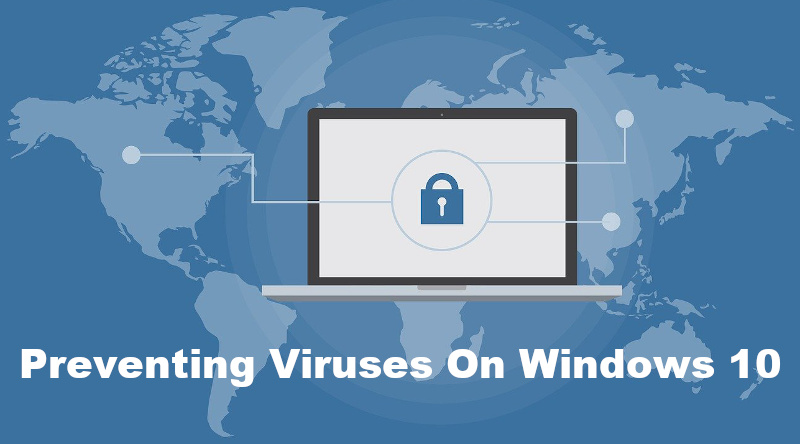
Windows 10 remains one of the most widely used operating systems in the world. And with Forbes reporting that Microsoft is releasing more updates, it’s likely that many will continue to run their devices on Windows 10 for the foreseeable future.
Because of this, it’s a good idea to stop and think about how to protect these devices every now and then. It’s never a bad time to update your digital security, whether that means investing in a particular tool or service or simply adjusting your thinking. So with that in mind, we put together a few helpful tips for how to prevent viruses on your Windows 10 devices.
Study Free Options
Many people think of virus protection and immediately envision hefty subscription fees and complicated security apps or plug-ins. However, you can typically set up fairly robust Windows 10 protection for free, if you’re willing to study your options. For one, take advantage of Windows Defender, keep it updated, and customize its settings and scanning capabilities. Windows Defender comes automatically with Windows 10, effectively as a pre-loaded virus guard.
Find The Right Program
If you want more of a say in the main program you’re using to protect your Windows 10 device from viruses, there are also plenty of additional options that are either free or affordable. Antivirus software programs suitable for Windows 10 include Bitdefender Home Scanner and Norton AntiVirus Plus, to name just a few. Each one has its own pros and cons, but by and large they offer strong protection and adjustable protective features. Anyone truly concerned about virus protection would do well to try a few of these options and see which one appeals most.
Protect Your Network
The previous suggestions are helpful for protecting your device and the programs you use. However, it’s also necessary to make sure that your Wi-Fi network itself is protected against unwanted interference or attention. This is an idea that came up in HP’s recent list of work-from-home tools. In addition to more general suggestions like high-speed internet and a reliable router, the article mentioned security tools beyond antivirus software. It specifically suggested the use of a VPN to create a secure browsing network, whether at home or when traveling. This is not a tip exclusive to Windows 10 devices, but it’s important to remember it as a worthwhile option beyond securing an actual device. A VPN essentially ensures that your browsing activity is private.
Avoid Questionable Apps
Several years ago, we wrote about a ‘Google Play Antivirus App Scam’ that had shockingly made it near the top of the “paid app” list and tricked thousands of people into paid downloads. This sort of thing specifically doesn’t happen all that often. However, it’s a good reminder even now to avoid questionable apps – whether on your PC, tablet, or smartphone. Most of us are inclined to trust a mainstream option as secure or reputable, but that past example shows that even a scam can become fairly prominent (and thus seem legitimate). To guard against mistakes in this area, it’s a good idea to research any app or program you download that you aren’t already familiar with – even if it looks perfectly trustworthy at a glance.
Mind Your Browsing Habits
Don’t forget to mind your browsing habits as well. This is a tip most are familiar with in the digital age we live in, but it can’t be repeated too often. While the VPN security mentioned above will help in this department, visiting questionable websites, ignoring warnings from your browser or antivirus software, and being loose with your security settings or how you display information can still lead to problems. If you’re assessing the security of your Windows 10 devices (or any devices for that matter), it’s a good time to consider and adjust any careless habits you may have gotten into as well.
Altogether, these tips are actually fairly simple to act on. And as a result, you can be all the more certain that your Windows 10 devices are operating in a secure manner.
